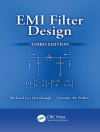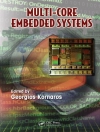As industrial, commercial, and residential demands increase and with the rise of privatization and deregulation of the electric energy industry around the world, it is necessary to improve the performance of electric operational management. Intelligent Energy Demand Forecasting offers approaches and methods to calculate optimal electric energy allocation to reach equilibrium of the supply and demand.
Evolutionary algorithms and intelligent analytical tools to improve energy demand forecasting accuracy are explored and explained in relation to existing methods. To provide clearer picture of how these hybridized evolutionary algorithms and intelligent analytical tools are processed, Intelligent Energy Demand Forecasting emphasizes on improving the drawbacks of existing algorithms.
Written for researchers, postgraduates, and lecturers, Intelligent Energy Demand Forecasting helps to develop the skills and methods to provide more accurate energy demand forecasting by employing novel hybridized evolutionary algorithms and intelligent analytical tools.
Inhoudsopgave
1.Introduction.- 2.Modeling for Energy Demand Forecasting.- 3.Evolutionary Algorithms in SVR’s Parameters Determination.- 4.Chaos/Cloud Theories to Avoid Trapping into Local Optimum.- 5.Recurrent/Seasonal Mechanism to Improve the Accurate Level of Forecasting.
Over de auteur
Wei-Chiang Samuelson Hong is an associate professor in the Department of Information Management at the Oriental Institute of Technology, Taiwan. His research interests mainly include computational intelligence (neural networks and evolutionary computation), and application of forecasting technology (ARIMA, support vector regression, and chaos theory), and tourism competitiveness evaluation and management. Dr. Hong’s articles have been published in Applied Mathematics and Computation, Applied Mathematical Modelling, Applied Soft Computing, Control and Cybernetics, Decision Support Systems, Electric Power Systems Research, Energy, Energies, Energy Conversion and Management, Energy Policy, IEEE Transactions on Fuzzy Systems, International Journal of Electrical Power & Energy Systems, Journal of Combinatorial Optimization, Journal of Systems and Software, Journal of Systems Engineering and Electronics, Mathematical Problems in Engineering, Neural Computing and Applications, and Neurocomputing, among others. Dr. Hong is currently on the editorial board of several journals, including International Journal of Applied Evolutionary Computation, Neurocomputing, Applied Soft Computing, Mathematical Problems in Engineering, and Energy Sources Part B: Economics, Planning, and Policy.
Dr. Hong serves as the program committee of various international conferences including premium ones such as IEEE CEC, IEEE CIS, IEEE ICNSC, IEEE SMC, IEEE CASE, and IEEE SMCia, etc.. In May 2012, his paper had been evaluated as “Top Cited Article 2007-2011” by Elsevier Publisher (Netherlands). In Sep. 2012, once again, his paper had been indexed in ISI Essential Science Indicator database as Highly Cited Papers, in the meanwhile, he also had been awarded as the Model Teacher Award by Taiwan Private Education Association.
Dr. Hong is a senior member of IIE and IEEE. He is indexed in the list of Who’s Who in the World (25th-30th Editions), Who’s Who in Asia (2nd Edition), and Who’s Who in Science and Engineering (10th and 11th Editions).












